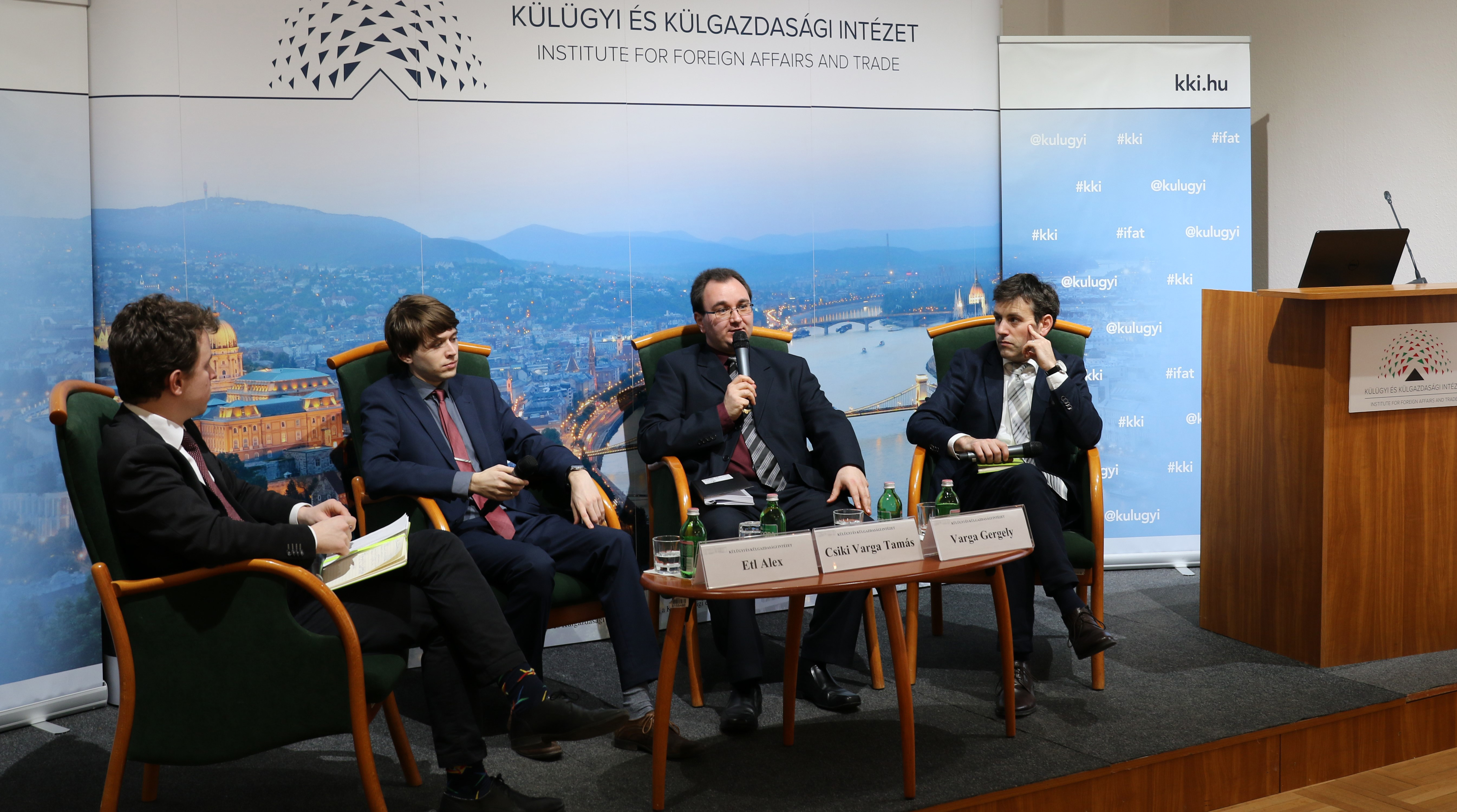On 19 February, the Institute for Foreign Affairs and Trade (IFAT) organized an event titled “Towards a More Effective European Foreign Policy – Research Presentation about the Qualified Majority Voting and the European Security Council”. The authors of the study discussed, among other things, the major challenges facing the European Foreign and Security Policy (CFSP), the changing global political environment affecting the effectiveness of EU foreign policy, and the dynamics among Member States.
Gergely Varga, senior research fellow of the IFAT, emphasized that one of the most significant positive aspects of the EU CFSP is that it functions as a power multiplier, and its sanctions regime functions efficiently. At the same time, EU foreign policy lacks strategic thinking and an appropriate consultation mechanism among Member States. The developments within both the so called “Friends of EU” and “Opponents of EU” clubs have been unfavourable to the Union over the last few years. He highlighted that the United States’ geopolitical shift to Asia was disadvantageous for the EU and he pointed out the various threats to the EU posed by Russia and China. Varga explained that the focus of EU foreign policy should be more on capacity building rather than on establishing new institutions, such as the European Security Council.
According to another author of the study, Tamás Csiki Varga, the greatest advantage of EU CFSP is that it exists – providing a forum for the EU27/28 for consultation –, but its greatest disadvantage is the way it exists: final decisions are often made only based on the lowest common denominator. Csiki, research fellow of the Institute for Strategic and Defense Studies (ISDS), said that the EU’s global environment started to change fundamentally in 2008-2009: the global financial crisis, the Russo-Georgian war and the Arab Spring all influenced the EU’s current situation. Individual EU countries had different views on the future direction of European foreign policy: the expression “European sovereignty” reflects the German concept, which is more of an inward-looking, inclusive idea, intending to increase the level of joint actions, whereas the expression “strategic autonomy” is essentially a French one, which has an external focus and is about developing operational capabilities and capacities for deployment. He stated that the European Defence Union should be finalized first before establishing new institutions. Concerning the foreign policy dilemma of “national interest against community interest”, Csiki argued that individual Member States have to find the right balance on the spectrum of purely transactional or fully solidary foreign policy, although, within the EU framework a sole transactional model may eventually become counterproductive.
Alex Etl, assistant research fellow of the ISDS, also viewed the possibility for consultation among the representatives of Member States as the most positive aspect of EU CFSP. He added that the lack of shared threat perception is a serious impediment to successful joint action. Reflecting on recent statements made by EU top officials, claiming that the Union should have more hard power, Etl stated that these reflect on the consequences of those major conflicts, in which the EU could not effectively identify and defend its interests. Concerning the debate about the introduction of a qualified majority voting in EU foreign policy decisions, he explained that the European Commission suggests the extension of QMV to three areas: sanction regimes, EU positions on human rights issues, and civilian CSDP missions. In his view, a qualified majority voting system disproportionately favours large Member States, therefore establishing a compensation mechanism for smaller Member States could be an incentive for their support of the QMV’s extension to the field of CFSP.
The event was moderated by Tamás Levente Molnár, research fellow of the IFAT.

